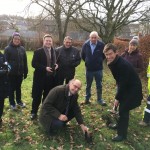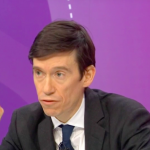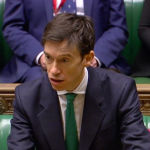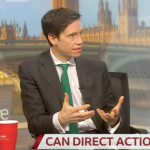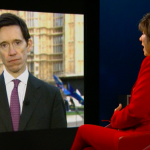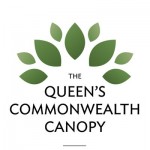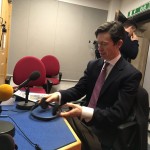Long before I was a politician, I monitored – as a diplomat – two elections in Indonesia, and ran a polling station for the first post-Saddam elections in Iraq. Later, again on behalf of Britain, I helped define the conditions for an election in Zimbabwe, funded grass-roots movements in Pakistan, parliamentary mentoring in Burma, and the training of political parties in Bangladesh. And last year, I spent an hour with President Kabila of the Democratic Republic of the Congo, trying to settle a timetable and rules for the election, happening this week. None of this prepared me for democracy in Britain after the Brexit vote.
We often tell ourselves and others that Britain is democratic because our voters are registered, polling stations well run, ballots secret, and counting well-monitored. Or we pride ourselves on a free media, and political parties with well-developed manifestos, and well-informed voters. Or on peaceful transfers of power for the last 330 years; minority rights, the rule of law, and the constitution.
But as people are being painfully reminded day after day at the moment there is a large difference between formal ‘democratic institutions’ and a government that does what you want. Your vote in a general election is one of perhaps 40 million. If you are lucky the person you voted for gets elected, and if you are lucky, a critical number of candidates from the same party are also elected in other constituencies. (Although in every election in Britain the majority of voters always fail to get the government they voted for).
But that is only the beginning of the complication. For most of the last decade no governing party has had a majority in parliament – meaning they abandon their manifestos to accommodate other parties or a handful of rebels. And even if they manage to get legislation through they then have to try to implement it in the face of the vast and complex terrain of British public life – negotiating step by step with shifting public opinion, the media, civil servants, lobby groups, NGOs, and the courts. And they have to do this with an ageing population, modest economic growth, a limited tax revenue, and a thousand competing priorities.
When our parliament faces an issue as divisive and important as Brexit, the unpredictability becomes far more dramatic. For almost six months, hundreds of thousands of people in the streets, the resignations of half a dozen cabinet ministers, or the votes of 324 MPs can have had little effect on the process. Then suddenly this week, a tiny number of individuals swapping sides, can come close to breaking the camel’s back. An accident of arithmetic can give twenty rebels immense power, without their views necessarily reflecting those of their constituents, let alone the views of the governing party, of 40 million potential other views on the Brexit deal, or the realities of a five hundred page deal, painfully developed over two years, through making and seeking concessions from 27 other member states.
Little wonder that many feel that the Brexit they voted for has no relation to the Brexit they are getting. Or that others – on the remain side – are tempted to try to ignore the result of the popular vote entirely – and insist on what they think is ‘right’. Little wonder that as a Minister, I feel daily that I am trying to operate a vast rusting machine with innumerable levers, gears, and wheels, and no instruction manual. Most of the time, when a lever is pulled, it appears to be attached to nothing, or after a cacophony of grinding and an explosion of smoke the machine lurches forward a single foot and stops again. But occasionally if you blow gently on an elusive spot on the side, it seems to accelerate smoothly for miles. How much we must all subconsciously be longing for our smart-phones, where at a single click, we can get exactly what we want.
So is our democracy broken? No. Because a democracy is not a smart-phone for satisfying individual desires. Nor is it the formal institutions I used to talk about in Asia and Africa. Instead, I am beginning to feel democracy is simply the coexistence of a human nation. Britain is a gathering of forty million quite different views and experiences, a community in which we can never meet more than a tiny fraction of our fellow-citizens, at a time when social media increasingly encourages us to trust no-one, but when trust and leadership is inescapable to face the contradictions, inanities, and impediments of government.
Our democracy is the organism through which our nation lives together. Its flaws are our flaws. Its task is to embody, sometimes exaggerate, but mostly mitigate, the common and distinct values, and impossible dilemmas of human society. It is shaped by all the uneven prejudices, misconceptions, insights and affections of our human species – human MPs, human economists, human civil servants, and human voters. Democracy is as untidy, as often absurd, and as necessary, as a nation, living together.




